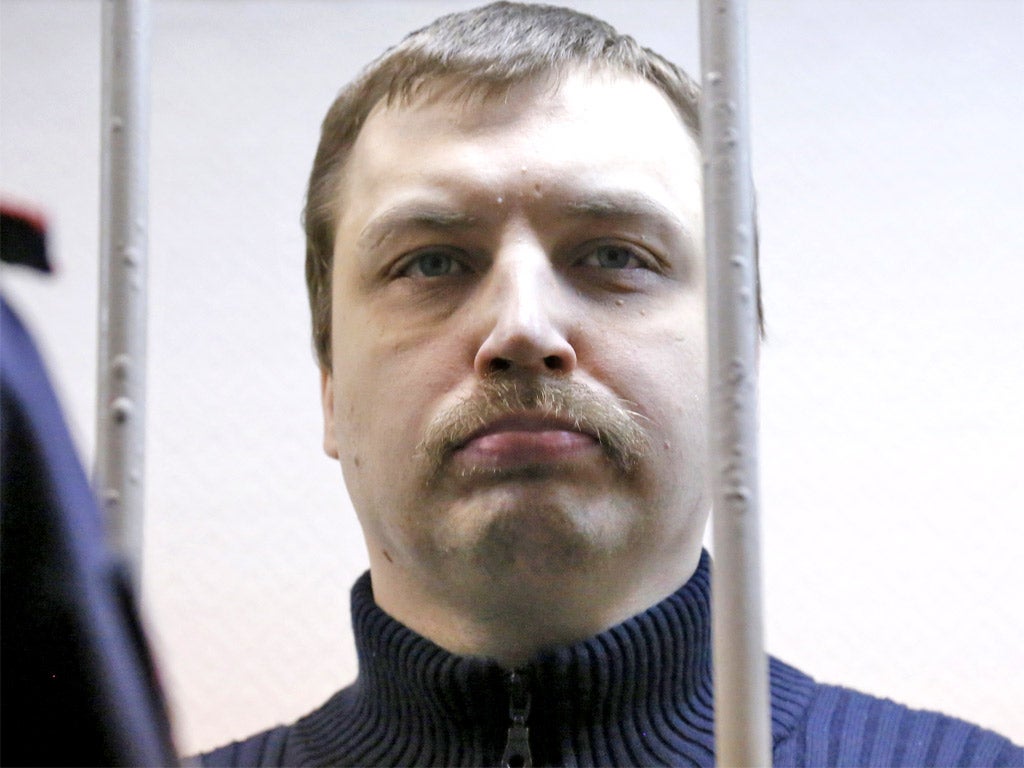Your support helps us to tell the story
From reproductive rights to climate change to Big Tech, The Independent is on the ground when the story is developing. Whether it's investigating the financials of Elon Musk's pro-Trump PAC or producing our latest documentary, 'The A Word', which shines a light on the American women fighting for reproductive rights, we know how important it is to parse out the facts from the messaging.
At such a critical moment in US history, we need reporters on the ground. Your donation allows us to keep sending journalists to speak to both sides of the story.
The Independent is trusted by Americans across the entire political spectrum. And unlike many other quality news outlets, we choose not to lock Americans out of our reporting and analysis with paywalls. We believe quality journalism should be available to everyone, paid for by those who can afford it.
Your support makes all the difference.A Moscow court has found a protester guilty of assaulting a police officer at an anti-President Putin rally last year, sentencing him to forced psychiatric treatment in a trial that has been widely seen as politicised.
Mikhail Kosenko, 38, was one of 27 people arrested and charged with inciting mass riots after protesters clashed with police at a May 2012 protest on Bolotnaya Square against the re-election of Mr Putin to a third term as president. He was the only one charged with assaulting a police officer. Although two of those charged previously pled guilty and were sentenced to prison terms, Kosenko is the first to be convicted of those who pleaded not guilty.
Kosenko was sentenced to forced treatment in a psychiatric hospital for an indefinite period, even as his lawyers called for him to placed in prison instead. Kosenko is disabled, having suffered a brain injury after being beaten in the army in the 1980s, but has previously been treated on an outpatient basis.
Prosecutors argued that Kosenko suffers from schizophrenia and requires treatment, while the defence maintained his innocence and said his condition does not merit forced treatment. The prosecution of the Bolotnaya defendants has widely been decried as an intimidation and Soviet-like tactic against the rash of street opposition protests that broke out in 2011 and 2012. Amnesty International recently declared Kosenko and two other Bolotnaya Square defendants as “prisoners of conscience” and Human Rights Watch has called for the charges against Kosenko to be withdrawn.
Video footage from the Bolotnaya protest on 6 May 2012 showed Kosenko standing harmlessly while other protesters clashed with riot police. And the riot policeman Kosenko allegedly assaulted refused to testify against him, saying he didn’t remember the faces of his attackers and that Kosenko shouldn’t go to prison. In a survey conducted by the independent Levada Centre, 55 per cent of Russians who knew about the Bolotnaya case viewed it as an attempt to intimidate opposition sympathisers.

Join our commenting forum
Join thought-provoking conversations, follow other Independent readers and see their replies
Comments